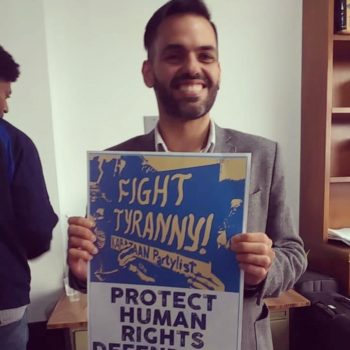A lovely lady, (Gogo) Juliana Praisi, comes from Ntakhala Village in the area of Traditional Authority Kadewere in Chiradzulu District, Malawi. When her house collapsed during Cyclone Idai, she survived beneath a heap of bricks. Her niece Lista Dan narrates the story of that one, tearful night.
It was a normal rainy season day for Gogo Juliana. The only strange thing was that it had been raining continuously for three days. The continuous rains were no cause for alarm, as this was a common occurrence in some rainy seasons. Little did we know that these were the very rains that would lead to the loss of Gogo Juliana’s home but also a threat to her life.
Gogo Juliana, now in her 70’s has two surviving children. Eight of her children have died, as has her husband. Her house stood a stone’s throw away from the other houses in the village. In Malawi, we have an extended type of family; this made one of Gogo Juliana’s grandchildren send her son Pemphero (meaning Prayer) who is two years old to be staying with her.
Gogo Juliana and Pemphero spent the day indoors because it was raining all day.

Most grannies like Gogo Juliana tell folk stories to their grandchildren and the stories would have a song which grandchildren sing along. This routine keeps grandchildren very close to their grannies. Gogo Juliana and Pemphero have a very strong bond. They passed the evening telling stories and singing, before going to sleep.
“At around 3 o’clock in the morning, we heard a loud sound of a falling wall. It was a house belonging to one of our relatives. Then another wall fell, then another, then another. Before we realized it every other house was falling down and the night was filled with screams and cries,” said Lista tearfully.
“Three houses fell down one after another, everyone was rushing around pulling out their children, trying to save baskets of flour and utensils. It was still raining heavily. There was chaos!” she lamented.
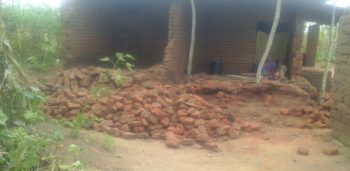
“… then the air was filled with sounds of sobs. No one could save their neighbor or relative, everyone was affected. There was one family we totally forgot about, Gogo Juliana and little boy Pemphero. No one remembered to check on them. We could not easily see each other because it was still dark. It was also a cold because of the rain, so every mother hugged her children tight and tried to keep them warm and comfort them.
The worst was saved for last. We heard a sharp but faint scream from afar; everyone wondered who that could be. It sounded like a baby’s cry. I listened carefully, letting go of my children and following the direction of the cry. Gogo Juliana! I screamed, while running towards her house. Everyone followed…When we got there, we could not see her. We found little Pemphero standing on a corner of the remaining pieces of broken walls surrounded by broken bricks and mud. I cannot remember everything I saw, but I was sure Gogo Juliana could be dead somewhere underneath the heap of broken bricks.
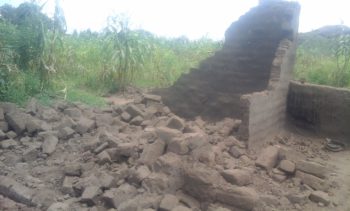
This village is typical of most villages in Chiradzulu District. One can hardly find men; because most women are divorced, abandoned, unmarried or widowed. Being a District neighboring the big city of Blantyre, some men from the city prefer to marry in the village. They usually come to Chiradzulu, promise the women marriage, but end up abandoning or divorcing them. The women are left with several children to look after without any support from the fathers. Women have to struggle alone in raising the children.
The women of the village dug Gogo Juliana out of the heap of broken bricks. The villagers say she was wounded, bleeding and covered in dirt. In her weakened state she could not utter a word but groaned in pain. Gogo Juliana was taken to the hospital and stayed there for two weeks. The doctors told her daughter that the x-ray results showed that she did not sustain any fractures. The family was relieved to hear that.
Gogo Juliana returned home; but is still very sick. Due to limited supplies at Chiradzulu District Hospital which is run by the government, some patients are discharged before they have fully recovered. Gogo Juliana is one of them. She still complains about chest pains and looked pale and frail. She could have suffered other internal injuries rather than the fractures which the doctors concentrated on.
Gogo Juliana needs urgent medical care. She needs to be thoroughly checked and be given dignity. At the moment she is staying in her son’s house which is still under construction, but was also destroyed on one side. The house has no doors, no windows and the floor is not cemented. Gogo Juliana does not have a bed; she is sleeping on a hard floor with a reed mat which can make her painful chest worse. The roofing is not complete, which lets mosquitos infest the house; putting Gogo Juliana at risk of catching malaria. Her family provided a mosquito net but the reed mat cannot hold the net.
As Gogo Juliana is being cared for at home, she needs a mattress, beddings, vitamins, food supplements, and post-trauma counselling. Her guardians need protective wear, detergents and psychosocial support.

There are many other families who have suffered different types of losses as the effect of Cyclone Idai. Food is their immediate need as the heavy rains destroyed their gardens. Some families need utensils while school-going children need exercise books and writing materials to replace their lost ones. 36 affected families out of the 48 families in this village alone need help to reconstruct their houses, kitchens, and toilets.
The affected families need to be supported with seed and fertilizers for winter cropping. According to Village Head Woman Ntakhala, the community need to establish village forests which can help in curbing the effects of climate change. The trees can also serve as timber in future. Economic empowerment programmes for women would have long lasting results to the affected families.
Blantyre Synod Health and Development Commission (BSHDC) would like to thank Partners and friends for standing in prayer which curbed the extent of the effects of Cyclone Idai. BSHDC appreciates the pledged financial support from Partners and Friends as it shall help us to reach out to the suffering and the needy brothers and sisters. All we can say is, ZIKOMO KWAMBIRI (Thank you very much!) BSHDC has chosen to support Chiradzulu District as the target area because it has been neglected by most development partners in humanitarian response following the effects of Cyclone Idai.
Written by Lindirabe Gareta-Mazinyane, Director, Blantyre Synod Health and Development Commission (BSHDC)

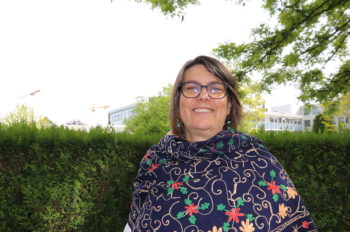 A blog of Elaine Neuenfeldt, Gender Programme Manager
A blog of Elaine Neuenfeldt, Gender Programme Manager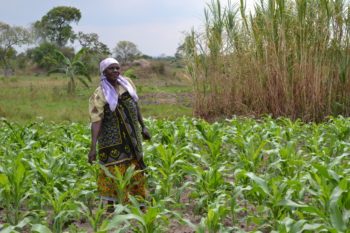
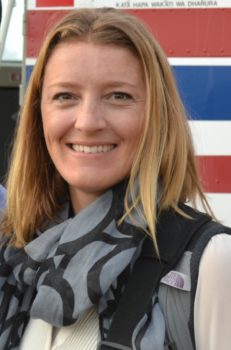 Blog is written by Naomi Johnson, Policy Advisor at Canadian Foodgrains Bank
Blog is written by Naomi Johnson, Policy Advisor at Canadian Foodgrains Bank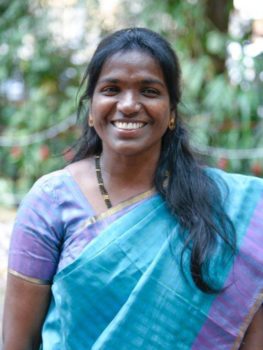 Blog written by Dr Joycia Thorat, Co-chair of Advisory Group on Advocacy, ACT Alliance and Project Officer & policy desk in charge,
Blog written by Dr Joycia Thorat, Co-chair of Advisory Group on Advocacy, ACT Alliance and Project Officer & policy desk in charge, 